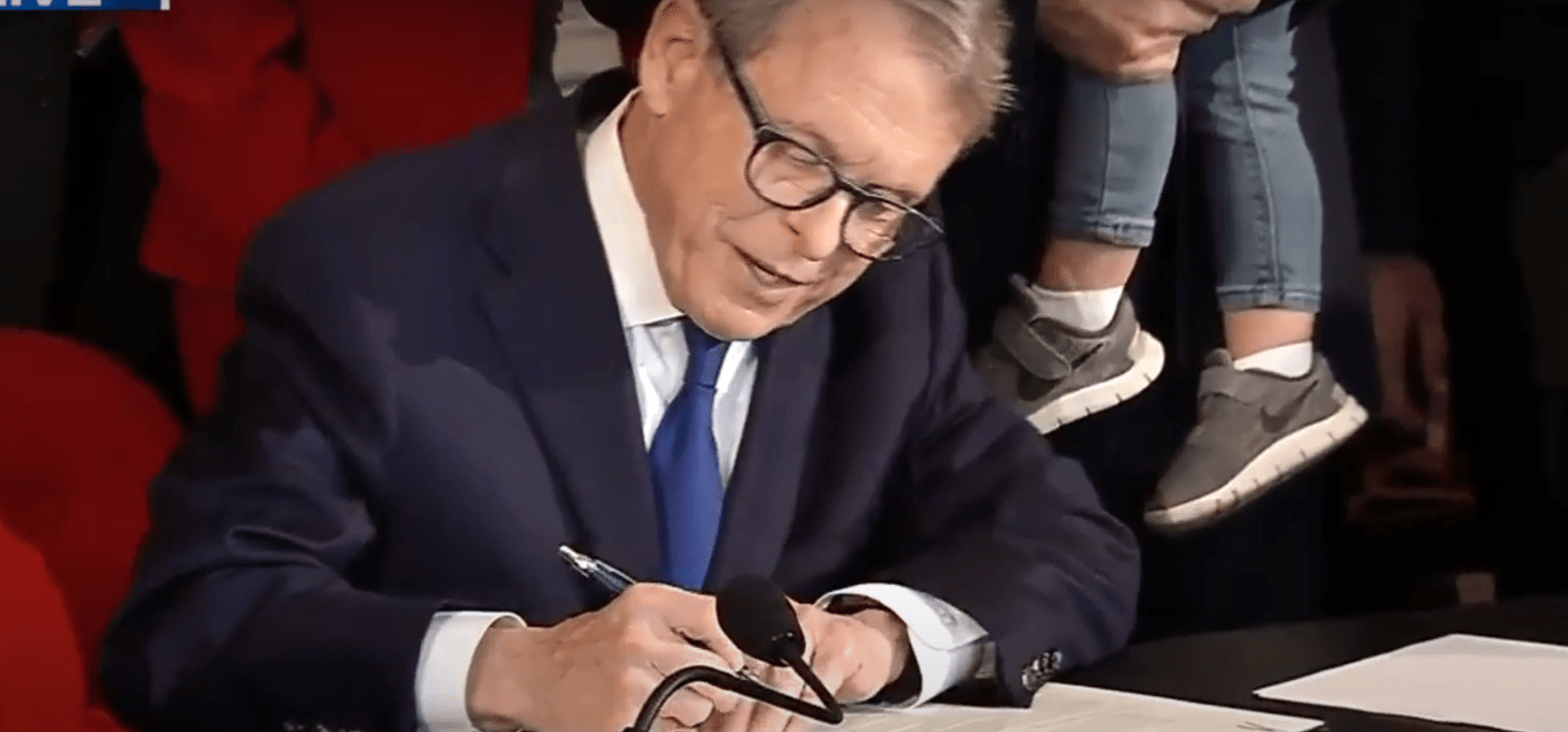Governor DeWine recently signed a new Voter ID law (HB 458) that has drawn fire from both sides of the aisle. Election officials claimed the changes were not necessary, Democrats filed a lawsuit to stop it, active military and immigrant advocates voiced their concerns, and election integrity reformists voiced dismay that the new law didn’t go far enough to secure future elections.
Changes not necessary
Before the law was signed, election officials said the changes were not necessary. The new law requires voters to show a photo ID in order to vote in person on Election Day or during early voting. Prior to the new law, voters could simply show a utility bill, paycheck or bank statement in lieu of a photo ID. The new law requires a form of identification with a photo and makes provisions for those without driver’s license to get a state ID at no cost. Election integrity reformists support the photo ID changes and point to a situation where a college in Ohio issued utility bills to their students, which would allow them to vote.
Voters could be disenfranchised
On the same day that DeWine signed the bill, Democrat attorney Marc Elias filed a lawsuit on behalf of the Northeast Ohio Coalition for the Homeless, the Ohio Federation of Teachers, the Ohio Alliance for Retired Americans and the Union Veterans Council for imposing burdens on Ohioan’s right to vote. The groups object to the requirements for strict photo identification and restrictions on voter’s ability to “cure” provisional or rejected absentee ballots. The new law narrows the timeframe from 10 days to 4 days after Election Day to make these updates.
The bill also angered active duty military members for reducing the number of days after Election Day for mailed ballots to be included in the election results from 10 days to 4. They fear that this narrow window could cause ballots to miss the deadline and not be counted.
Non-Citizen label could lead to harassment
Another provision requires driver’s licenses and state IDs to display a “Noncitizen” label for those that cannot provide proof of citizenship. Immigrant advocates fear that such a label may subject immigrants to potential harassment. Supporters of the provision say it can protect immigrants from unknowingly casting illegal ballots. In a case known to the author, a refugee from the Congo was contacted by an unknown individual and instructed to take a bus to vote in the 2016 Presidental Election. The refugee refused saying it was illegal for him to vote and he didn’t want to jeopardize his path to citizenship.
More needs to be done
Local election integrity advocates were pushing for measures that would get rid of voting machines in favor of hand counting and restrict access to voter registration rolls by outside groups, among others.
Ken Cuccinelli, The National Chairman of the Election Transparency Initiative and former Attorney General for Virginia, applauded DeWine for signing the legislation despite threats of litigation. He also pointed out areas where the legislation didn’t go far enough and expressed hopes that legislature would pursue additional reforms during the 2023 legislative session. Specifically, he would like to see restrictions on unsolicited mass-mailing of absentee ballot applications, elimination of ballot trafficking, a requirement that absentee ballots must be received by the time polls close on election night, and the elimination of drop boxes.
Additional reforms not likely
Additional reforms do not appear to be likely. On signing the law, DeWine said “…I do not expect to see any further statutory changes to Ohio voting procedure while I am Governor.”
So now it’s up to election officials to enforce the provisions of the new law that will be in effect in time for the May 2023 election.
Voter Photo ID law at-a glance
- Requires photo ID to vote in person on Election Day or during the early voting period except for those with religious objections to photos. Acceptable ID includes a valid driver’s license, state ID card, U.S. passport, U.S. military ID, Ohio National Guard ID or Department of Veterans Affairs ID.
- Requires a “Noncitizen” label be affixed to driver’s licenses and state IDs when an individual cannot provide proof of citizenship.
- Limits drop boxes to one per county at a board of election office, accessible only during board operating hours and monitored by video surveillance at all times. It also stipulates that video recordings are a public record.
- Eliminates most special elections in August unless there is a fiscal emergency.
- Eliminates early in-person voting the Monday before Election Day and allows the Secretary of State to redistribute the hours to the week prior.
- Requires that applications for absentee voting ballots be submitted 7 days before the election instead of 3.
- Requires mailed in absentee ballots to arrive no later than 4 days after Election Day rather than 10 to be counted.
- Requires provisional ballots and other irregularities to be “cured” in person at a board office within 4 days after the Election Day rather than 7.
- Prohibits curbside voting unless the voter has a disability and is unable to enter the polling place.
- Prohibits any voting machine, marking device or piece of automatic tabulating equipment to be used in an election with undergoing successful testing.
- Codifies several “directives” from the Secretary of State.
Read more here












